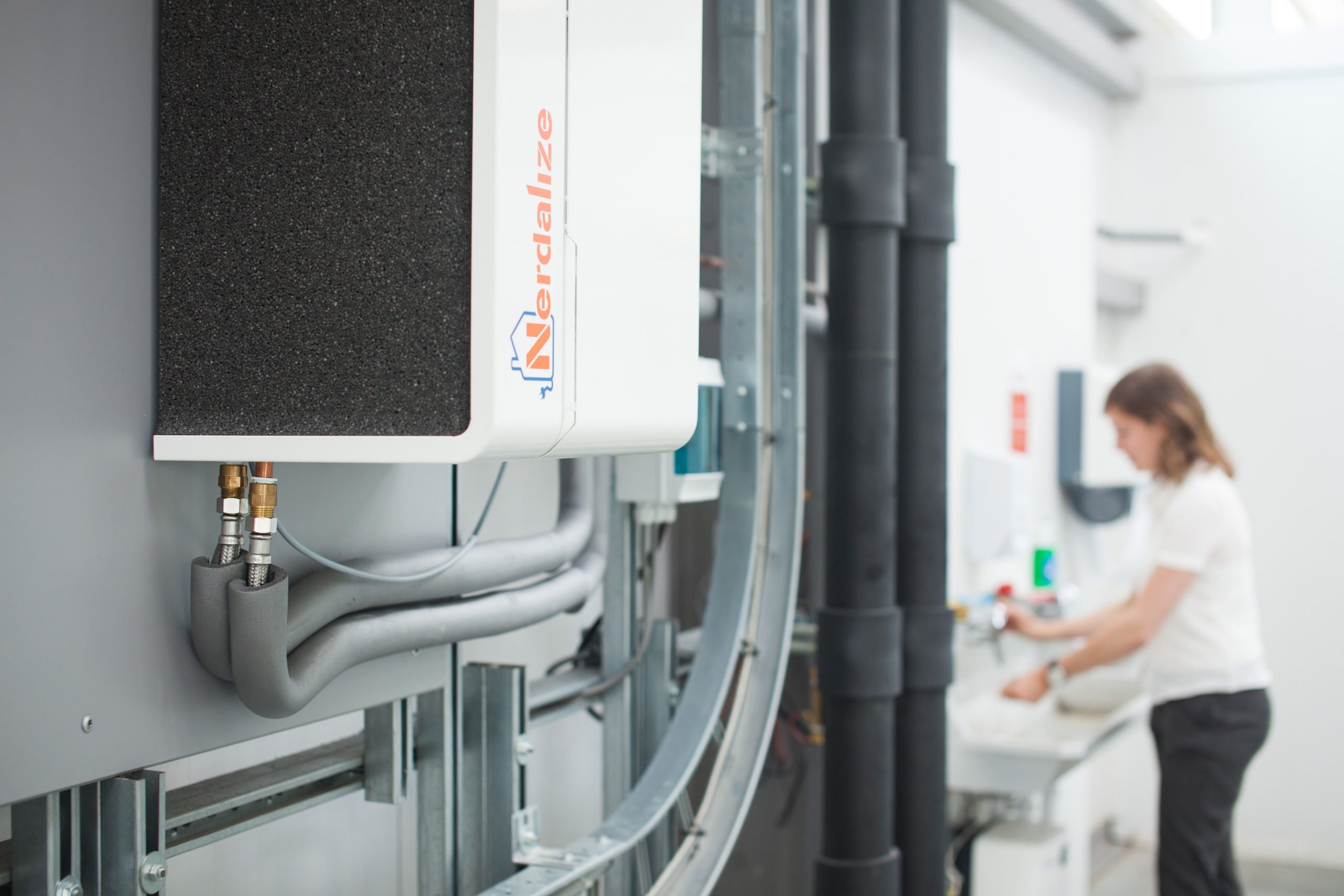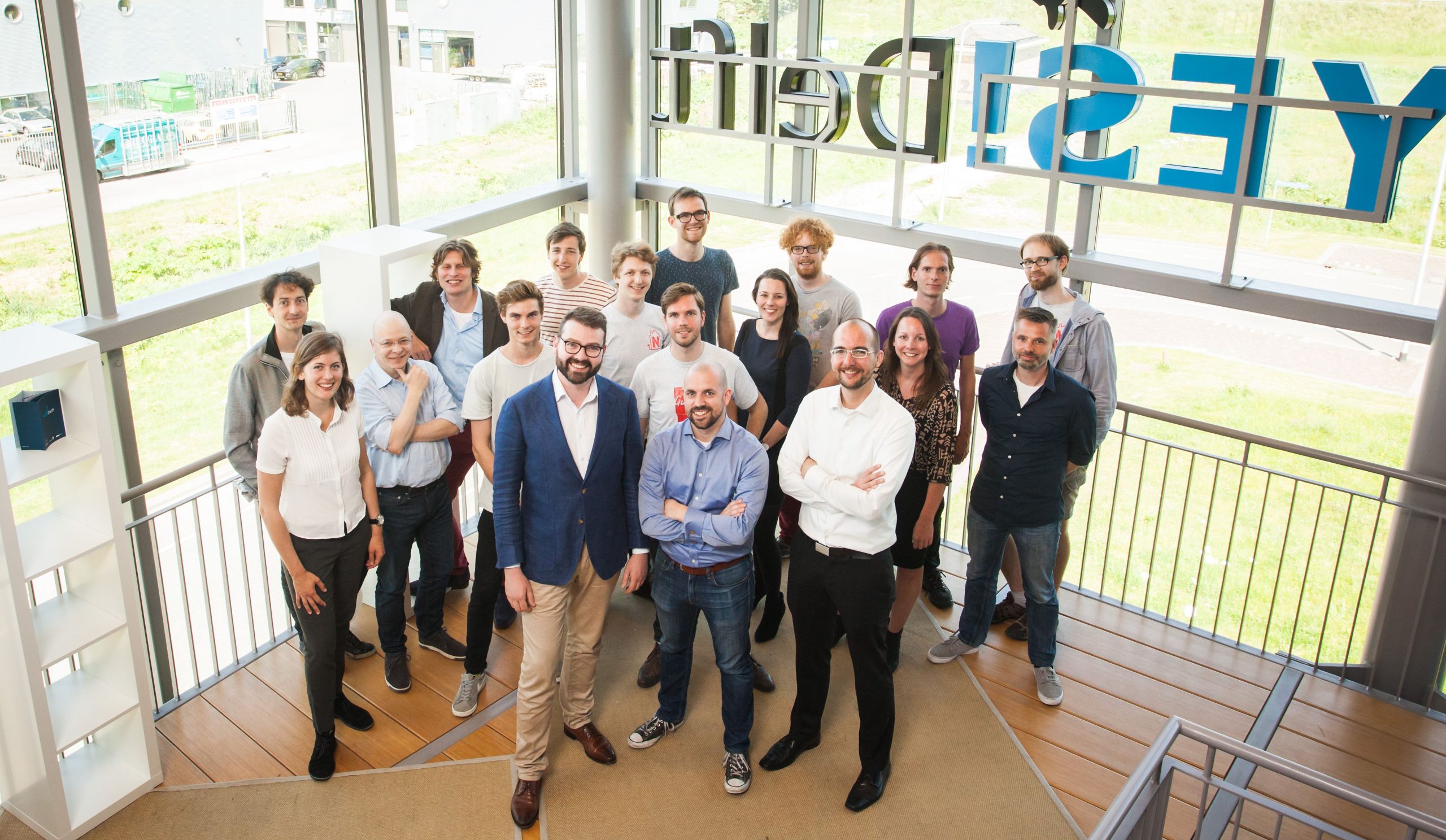Nerdalize, the Delft start-up that puts waste heat from data servers to domestic use, has increased the target for its crowdfunding campaign twice. With over half a million euros already committed, the company is now aiming for 750,000 euros.
The company presently employs about 20 people. (Photo: Nerdalize)
Nerdalize has an original idea: why waste the heat in data centres if you can put servers in people’s homes so that their heat can heat tap water or rooms. The only requirements are a fast data connection and a steep up-front investment.
Three-quarters of a million euros are what Nerdalize needs to provide 50 households in the village of Berkel Rodenrijs with its heating service. That means 15,000 euros investment per household. Maaike Stoops from Nerdalize says that this amount also covers other costs than just the hardware, such as team expansion, software engineers to connect the clients, and investments in glass fibre connections. But, in the end, placing a high-end data server in a house for heating purposes requires high up-front investments.
Households pay an entrance fee of 400 euros and after that their heating is free. According to Stoops, the computer server annex boiler produces 800–1,200 watts of heat. It is coupled to the central heating system.
 Smart boiler. (Photo: Nerdalize)
Smart boiler. (Photo: Nerdalize)
‘Managing growth is a balancing act’
The installation will be done by the energy company Eneco, Nerdalize’s alliance partner. According to Nerdalize, results from a small-scale test in 2015 show that households can save up to 300 euros in heating costs per year, let alone avoiding CO2 emissions. No wonder then that 3,700 people have stated their interest in Nerdalize’s computer boiler.
Computing power users are interested as well, says Nerdalize, which claims that it can offer computing power for half the usual rate as it no longer needs to build data centres to house its servers.
Nerdalize’s proposal sounds like a win-win situation, although it needs steep investments to get started. A successful crowdfunding campaign that raised over half a million euros in three weeks’ time showed that the investment required is no show stopper. Currently, the amount collected is 645,000 euros, nearly three times the original required amount. The company promises an yearly interest rate of 7% over a 4.5 year period.
Managing growth is a balancing act, says Stoops. Because households and computing power are such radically different markets, they are unlikely to grow in parallel. The first 50 homes will be connected in August. After that, the company plans to expand to Friesland.
Related articles:
Startup Nerdalize (Feb 2016)
Data-centres can heat homes for free (Feb 2015)
Do you have a question or comment about this article?
j.w.wassink@tudelft.nl


Comments are closed.